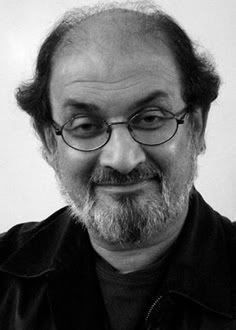"The Real Thing And The Rarest"

Roberto Bolano
The title, "the real thing and the rarest" is what Susan Sontag said about the writer and poet Roberto Bolano (the n has a tilde). Bolano was born in 1953 in Chile. He died at age 50 in 2003. He wrote nine novels, short stories, and poetry. And he lived in the Chilean diaspora of Mexico and Europe before returning to Chile. Unfortunately, like me, you may never have heard of him during his life. What a tremendous loss not reading him would be.
How did I come to hear about him? I'm not sure how I found this April, 2007 article in the Nation. But after reading it, I decided to order a book. My local library system, the Mid-Hudson Library System, to my amazement has actually heard of Bolano and has four of his books in its catalog, but I am impatient when I think I'm on the brink of discovery, so I ordered a copy of Distant Star from my favorite used book resource Abe Books for fast delivery. And wow, what a "discovery" it was! I devoured the book and loved it, so I went ravenously and gluttonously on to By Night In Chile and Last Evenings On Earth.
Bolano's writing is spare, coruscating, smart, simply wonderful. A review by Wayne Koestenbaum in Bookforum speaks of his "addict[ion] to the haze that floats above Bollano's fiction". Francisco Goldman labels it "the high-voltage first-person braininess of a Saul Bellow". Whatever. It fills me with enormous envy. The kind of envy and jealousy that makes it hard to work on my own novel in progress. The kind of envy that makes me wonder about the adequacy and effectiveness of my own prose.
A very brief example. One of the short stories in Last Evenings, "Mauricio ("The Eye") Silva" begins
Mauricio Silva, also known as "The Eye", always tried to avoid violence, even at the risk of being considered a coward, but violence, real violence, is unavoidable, at least for those of us who were born in Latin America during the fifties and were about twenty years old at the time of Salvador Allende's death. That's just the way it goes.
You might give one of your first as yet unborn children or one of your less important extremities for such a beginning.
The story "Last Evenings On Earth" takes place during a vacation trip the narrator, like Bolano, a poet, takes with his father, a former Chilean boxing champion, from Mexico City to Acapulco in 1975, is brilliant, riveting, surprising and my favorite. Something menacing and dark lurks beneath the narration, simmering, but when it finally erupts the story is over. At the conclusion did I say, "Yes!" aloud, or did I just think it loudly?
It's summer and beach reading season in the Northern Hemisphere. In addition to The Dream Antilles, which I always recommend for this purpose, any of Bolano's books would be a just perfect.
Etiquetas: Chile, Roberto Bolano








